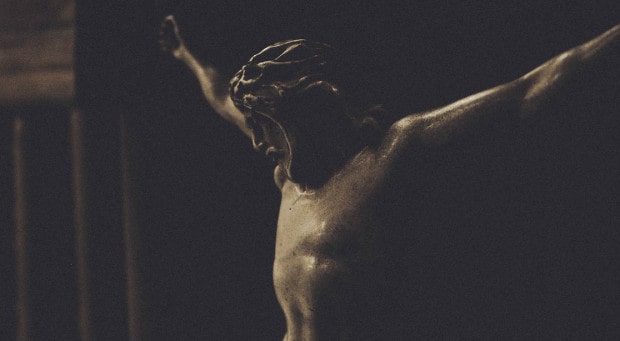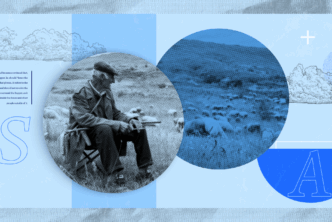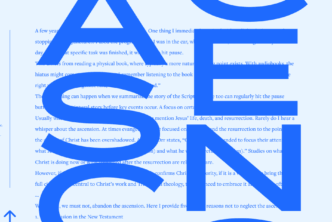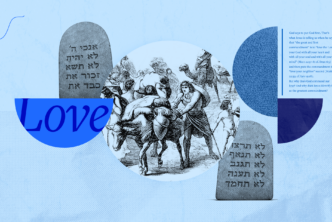Enjoy these quotes on salvation and repentance from Carson, Barth, and Spurgeon. (Bonus quote from Tozer at the end, too.)
D.A. Carson
If God had perceived that our greatest need was economic, he would have sent an economist. If he had perceived that our greatest need was entertainment, he would have sent us a comedian or an artist. If God had perceived that our greatest need was political stability, he would have sent us a politician. If he had perceived that our greatest need was health, he would have sent us a doctor. But he perceived that our greatest need involved our sin, our alienation from him, our profound rebellion, our death; and he sent us a Savior. (emphasis mine)
— from Praying with Paul: A Call to Spiritual Reformation, pg. 80. Available in the D.A. Carson collection.
Karl Barth
We cannot […] define Christians simply as those who are awake while the rest sleep, but more cautiously as those who waken up in the sense that they are awakened a first time and then again to their shame and good fortune. They are, in fact, those who constantly stand in need of reawakening and who depend upon the fact that they are continually reawakened. They are thus those who, it is to be hoped, continually waken [sic] up.
The sleep from which they awaken is the relentless downward movement consequent upon their sloth. Like all others, they participate in this movement, dreaming many beautiful or bad dreams but not really knowing what is happening to them. When they waken, or are wakened, they experience a jolt which both arrests them in this movement and sets them in the counter-movement. They realise where their way was leading, that they must not tread it any further, and that they now can and must take the opposite direction. In this event and realisation—which are both included in the shock that they receive—they wake up for the first time—which will certainly not be the last. In this awakening they become Christians—men who are now free, and who make use of their freedom, to look up and raise themselves. The verse 2 Cor. 5:17 is true of them as this happens: “Old things are passed away; behold, all things are become new.” For in this awakening they are “in Christ” in the narrower sense of the term as it applies only to them.
— “The Awakening to Conversion” in Church Dogmatics, vol. 4.2, chapter XV. Available in the Karl Barth collection.
Charles Spurgeon
The Lord can give repentance to the most unlikely, turning lions into lambs, and ravens into doves. Let us look to Him that this great change may be wrought in us. Assuredly the contemplation of the death of Christ is one of the surest and speediest methods of gaining repentance. Do not sit down and try to pump up repentance from the dry well of corrupt nature. It is contrary to the laws of mind to suppose that you can force your soul into that gracious state. Take your heart in prayer to Him who understands it, and say, “Lord, cleanse it. Lord, renew it. Lord, work repentance in it.” The more you try to produce penitent emotions in yourself, the more you will be disappointed; but if you believingly think of Jesus dying for you, repentance will burst forth. Meditate on the Lord’s shedding His heart’s blood out of love to you. Set before your mind’s eye the agony and bloody sweat, the cross and passion; and, as you do this, He who was the bearer of all this grief will look at you, and with that look He will do for you what He did for Peter, so that you also will go out and weep bitterly. He who died for you can, by His gracious Spirit, make you die to sin; and He who has gone into glory on your behalf can draw your soul after Him, away from evil, and toward holiness.
I shall be content if I leave this one thought with you; look not beneath the ice to find fire, neither hope in your own natural heart to find repentance. Look to the Living One for life. Look to Jesus for all you need between Hell Gate and Heaven Gate. Never seek elsewhere for any part of that which Jesus loves to bestow; but remember, Christ is all. (emphasis mine)
— from All of Grace, pg. 90. Available in the Charles Spurgeon collection.
With Logos on your computer and mobile devices, you have instant access to influential writings like these. As you’re studying repentance or sanctification or any topic these writers address, Logos will reveal relevant insights from across your library. All you have to do is click.
***
Bonus quote from A.W. Tozer:
Webster’s Unabridged Dictionary lists 550,000 words. And it is a solemn and beautiful thought that in our worship of God there sometimes rush up from the depths of our soul’s feelings that all this wealth of words is not sufficient to express. To be articulate at certain times we are compelled to fall back upon “Oh” or “O!”—a primitive exclamatory sound that is hardly a word at all and that scarcely admits of a definition.
Vocabularies are formed by many minds over long periods and are capable of expressing whatever the mind is capable of entertaining. But when the heart, on its knees, moves into the awesome Presence and hears with fear and wonder things not lawful to utter, then the mind falls flat, and words, previously its faithful servants, become weak and totally incapable of telling what the heart hears and sees. In that awful moment, the worshiper can only cry “Oh!” And that simple exclamation becomes more eloquent than learned speech and, I have no doubt, is dearer to God than any oratory.
— from Born After Midnight, pg. 80. Available in the A.W. Tozer collection.





